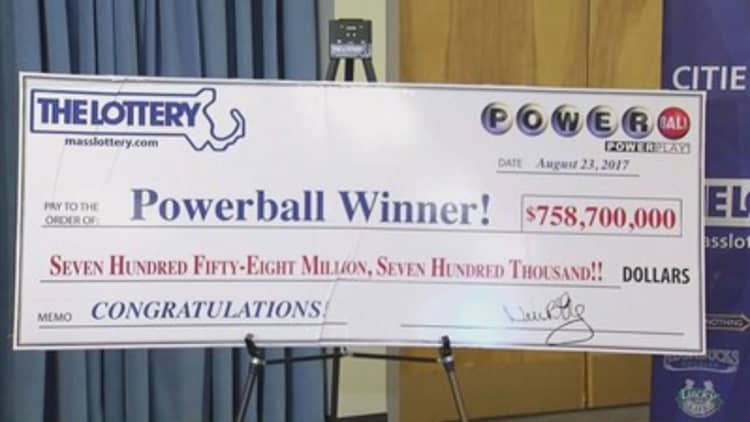When you win the lottery, you suddenly have a lot to lose.
That's why financial experts have very clear instructions for what to do if you have the winning ticket: keep quiet, move slowly, be strategic.
But since claiming the $758.7 million Powerball jackpot at 1:30 p.m. EDT today, winner Mavis L. Wanczyk of Chicopee, Massachusetts, has ignored nearly all of that advice. When the 53-year-old realized she had the winning ticket, she immediately quit her job of 32 years in patient care at Mercy Medical Center.
"I've called them and told them I will not be coming back," she told reporters this morning.
The first thing that experts recommend winners do is to keep quiet. "I would recommend not telling people," says Nick Holeman, certified financial planner at Betterment. "I wouldn't necessarily go broadcasting it to the world."
Lottery winners typically have three months to present their ticket — Wanczyk spoke with press in less than 24 hours.
Experts also suggest not making any rash life changes. The CFP Board of Standards says nearly one-third of lottery winners eventually declare bankruptcy. Powerball winners are able to collect their winnings as a lump sum prize or in a series of payments over 30 years, known as an annuity. Holeman says the annuity is the smart choice.
"If you get a huge lump sum, it's easier to make a mistake, whereas if you choose the annuity, then at least if you mess up and blow the first year's worth, you have another chance."
Wanczyk chose to take the lump sum payment, roughly $336 million after taxes.
She does have Jim Cramer in her corner. He thinks the lump sum option is the right choice, arguing that you want to put as much money as possible to work for you as soon as possible.
"Take the money all at once," the "Mad Money" host said. "Don't let them string it out like that. You want the time value of all that cash working for you. That's vital."
Wanczyk's prize is the largest amount won by a single lottery ticket in U.S. history — maybe she can afford to break the rules.
Like this story? Like CNBC Make It on Facebook
Don't miss: Here's what happens if you don't pay your student loans




